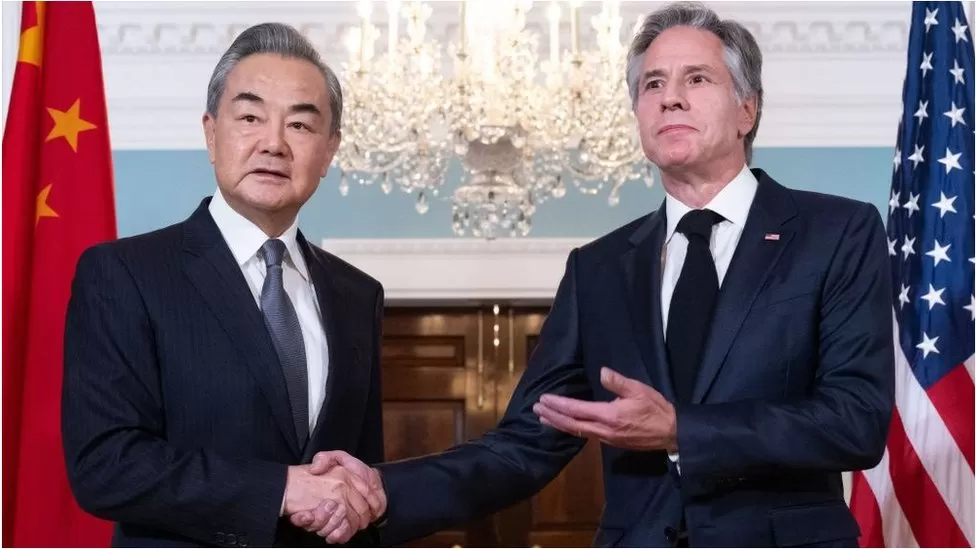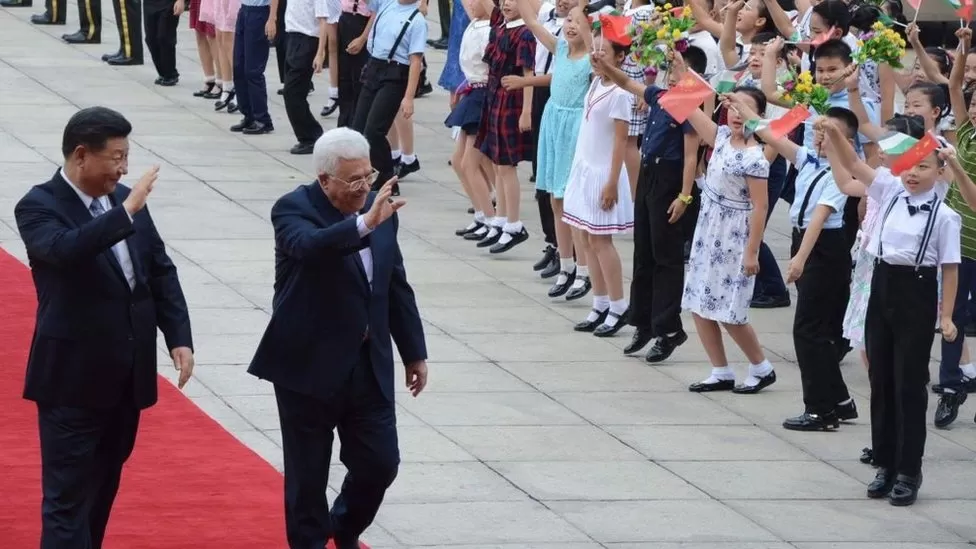News
What China wants from Israel-Hamas War

(CTN News) – An unexpected development has developed as Israel and Hamas’ war escalates China’s role as a peace broker. However, its effectiveness is limited.
Wang Yi, China’s top diplomat, met with U.S. officials in Washington over the weekend to discuss the dispute amid concerns of a wider regional war. The United States has stated that it will cooperate with China to attempt to reach a solution.
After China’s special envoy to the Middle East, Zhai Jun, flew to the region to meet Arab officials, Mr. Wang also spoke with his Israeli and Palestinian counterparts. It has also been an outspoken advocate for a ceasefire at United Nations sessions.
Some believe that China’s close ties to Iran, which supports Hamas in Gaza and Hezbollah in Lebanon, could help to ease tensions. According to the Financial Times, US officials reportedly encouraged Mr. Wang to “urge calm” with the Iranians.
Beijing this year mediated a rare détente between Iran and Saudi Arabia, and China is Iran’s largest trading partner. Iran “stands ready to strengthen communication with China” on a resolution to the Gaza conflict, the country’s foreign ministry said.
Associate professor of Chinese foreign policy at the United States Department of Defense’s National War College, Dawn Murphy, has said that China might be seen as an honest broker due to its reasonably even-keeled relationship with all parties involved in the conflict.
She mentioned that China’s connections with the Palestinians, Arabs, Turkey, and Iran are all particularly positive. “Together with the US which has good relations with Israel, they could bring all of the players to the table.”
Other experts, however, stress that China plays a relatively insignificant role in Middle Eastern politics.
A significant player on this subject, China is not. According to Atlantic Council non-resident senior fellow and expert on China’s relations with the Middle East Jonathan Fulton’s conversations with locals, “nobody expects China to contribute to the solution.”
As a result of China’s initial remark on the conflict, Israel was upset and voiced its “deep disappointment” that China would not denounce Hamas or acknowledge Israel’s right to self-defense.
More than 1,400 people were killed and at least 239 hostages were taken on 7 October when Hamas terrorists launched an unprecedented attack on Israel from the Gaza Strip.
According to the Hamas-controlled Ministry of Health, more than 8,000 people have been killed in Israeli reprisal strikes on Gaza since then. Israel has also recently sent troops and tanks there.
Mr. Wang later informed Israel that “all countries have the right to self-defence” after the uproar over the initial statement, but he also added that Israel’s actions have gone “beyond the scope of self-defence” abroad.
Because of its longstanding public support for the Palestinian cause, China must strike a delicate balance.
Beginning with Mao Zedong, founder of the Chinese Communist Party, who supplied the Palestinians with weaponry in support of international “national liberation” movements. Mao even went so far as to liken Israel and Taiwan, both of which receive support from the United States, to imperialist outposts.
China’s commerce with Israel has reached $1 billion thanks to the country’s subsequent economic opening and normalisation of relations with the Jewish state.
However, China has reiterated its support for the Palestinians. Both Chinese officials and President Xi Jinping have called for a Palestinian state of their own in response to the recent bloodshed.
As a result, nationalist bloggers have stoked the flames of online antisemitism. The German embassy in Beijing issued a condemnation after some Chinese social media users compared Israel’s activities to those of the Nazis by accusing the country of carrying out a genocide against the Palestinians.
An Israeli embassy worker’s relative was stabbed in Beijing, adding to the tension.
When trying to negotiate with the Israeli government, all this may not seem well for China.
Why is China getting involved, given the risks?
As the crisis escalates, it could have a negative impact on its economic interests in the Middle East.
Analysts believe that roughly half of Beijing’s oil comes from the Gulf, and that the city is now highly reliant on foreign imports for its energy needs. China’s Belt and Road Initiative (BRI) is a central plank of its foreign and economic policy, and Middle Eastern countries have emerged as key actors in this initiative.
However, another factor is that Beijing may use the issue to boost its image.
Dr. Murphy noted that China “stands up for the Palestinians because it resonates with Arab countries, Muslim-majority countries, and large portions of the Global South.”
Now that China is portraying itself as a more attractive option than the United States, the timing of the war couldn’t be worse. Since the beginning of the year, it has advocated for a world order led by China while highlighting the shortcomings of the United States’ “hegemonic” rule.
So far, China’s official position is that it will not criticise the United States for supporting Israel. However, Dr. Murphy has pointed out that state media is “ginning up the nationalist response,” connecting events in the Middle East to American support for Israel.
In an article published in the PLA Daily, the Chinese military complained that the United States was “adding fuel to the fire” by supporting Kyiv in the Ukraine conflict. The Global Times, an official English-language daily, depicted Uncle Sam with blood on his hands in a cartoon.
Observers have speculated that Beijing is trying to undermine its western rival’s global status by emphasising the differences between its viewpoint and the US’s. China risks losing credibility if it fails to publicly criticise Hamas.
China’s long-term goals are not without difficulty.
The first is how it can reconcile its diplomatic stance with its past actions. Even if Beijing condemns Israel’s occupation of Palestinian territory and proclaims support for Muslim-majority countries, the Uyghur Muslim minority and the Tibetan people continue to accuse China of human rights abuses and genocide.
However, experts think that China’s already-solid relationships with the Arab world mean that this won’t be a problem.
Beijing’s involvement may be perceived as shallow, or even worse, as an attempt to profit from the Israel-Hamas war.
“by saying you support Palestine you’ll score points with Arab countries, and that is a cookie-cutter approach,” Dr. Fulton said of China, adding that “there is not some unified voice” among Arab states on the contentious topic.
Mr. Wang has stated that China has “no selfish interests on the Palestinian question” and merely wants peace in the Middle East.
Making everyone believe this is the case will be difficult.































